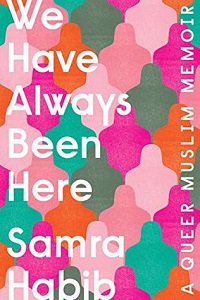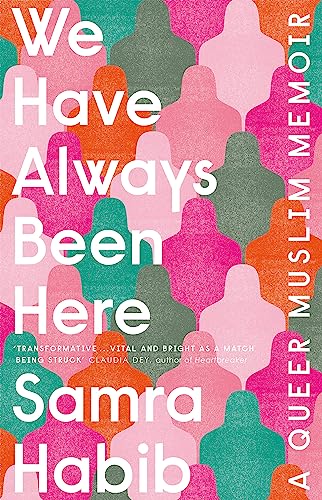
This story made me feel like it’s ok to be who you are unapologetically, whether you stay in your religion or not.

This book made me feel like I belong, I am queer and a former Christian so I felt a lot of fear about what would happen if I came out to the people at my church. I can’t say it enough that this story and others like it need to be heard and read and talked about. We don’t hear enough of these stories from queer Muslims who may face the most discrimination for coming out to their Muslim community. In almost every major religion we hear about queer people leaving the religion because they feel judged and misunderstood by people in their religion. This is such an important story and subject matter that everyone should be hearing and learning about.

This is absolutely a work of perfection that i believe everyone needs to read in their lifetime. I absolutely will never forget this book. Habib’s every word lifts off the page, vital and bright as a match being struck.” (Claudia Dey, author of Heartbreaker) Habib’s voice is sensual and mesmerizing, her talent fierce and necessary. “Gutting and redemptive, We Have Always Been Here is the story of one woman’s path to self-determination against every odd. A triumphant memoir of forgiveness and family, both chosen and not, We Have Always Been Here is a rallying cry for anyone who has ever felt out of place and a testament to the power of fearlessly inhabiting one's truest self. So begins an exploration of faith, art, love, and queer sexuality, a journey that takes her to the far reaches of the globe to uncover a truth that was within her all along. The men in her life wanted to police her, the women in her life had only shown her the example of pious obedience, and her body was a problem to be solved. Backed into a corner, her need for a safe space - in which to grow and nurture her creative, feminist spirit - became dire. When her family came to Canada as refugees, Samra encountered a whole new host of challenges: Bullies, racism, the threat of poverty, and an arranged marriage.

From her parents, she internalized the lesson that revealing her identity could put her in grave danger. As an Ahmadi Muslim growing up in Pakistan, she faced regular threats from Islamic extremists who believed the small, dynamic sect to be blasphemous. Samra Habib has spent most of her life searching for the safety to be herself. How do you find yourself when the world tells you that you don't exist?


 0 kommentar(er)
0 kommentar(er)
